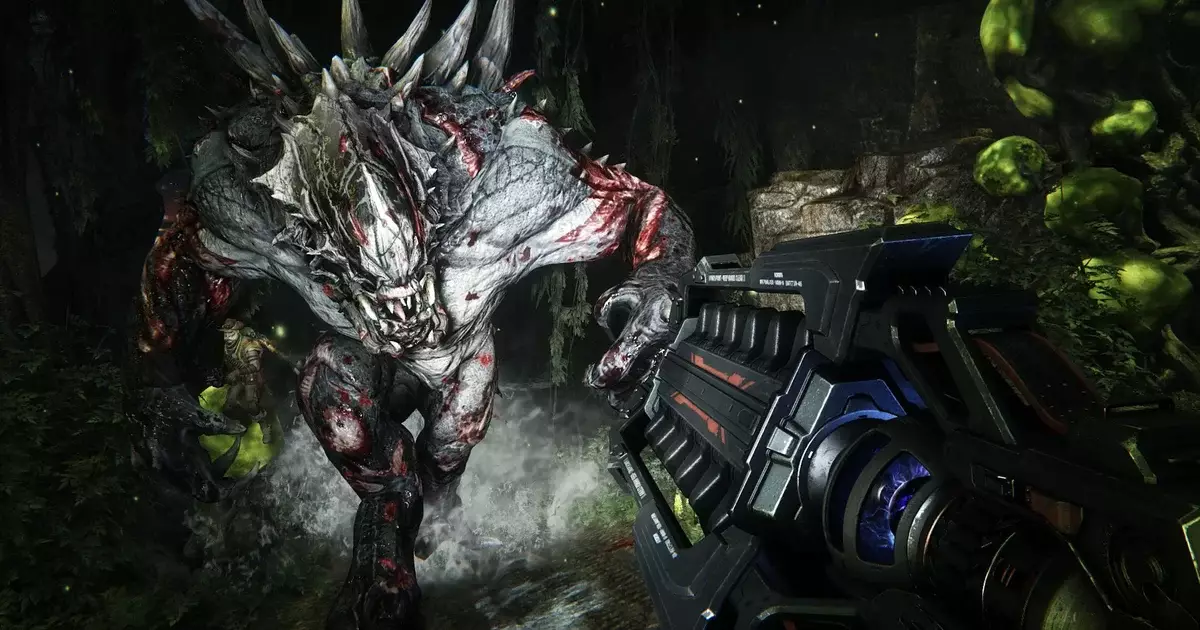The gaming industry often finds itself caught in a relentless tug of war between artistic aspiration and commercial pressure. Titles like Turtle Rock’s *Evolve* exemplify this dichotomy. On one hand, the game was an inventive twist on the asymmetrical multiplayer genre, showcasing a compelling predator versus prey dynamic that kept players enthralled. On the other hand, its potential was undermined by a heavy reliance on microtransactions and an unforgiving grind, revealing a misaligned priority that ultimately hampered its long-term viability. As critics and players alike lamented the downfall of *Evolve*, it became a cautionary tale illustrating how aggressive monetization strategies can tarnish innovation, leaving behind a shadow of what could have been a genre-defining experience.
While the initial gameplay was promising—offering thrills through fast-paced pursuit and stealth mechanics—the game’s design soon revealed weaknesses. The early game was marred with sluggish progression and a tedious grind, making engagement feel less like immersive fun and more like a chore. The addition of paid DLC only deepened frustrations, signaling a shift from offering meaningful content to milking players for every dollar. This strategy not only alienated a significant portion of the community but also contributed to *Evolve*’s eventual delisting several years after launch. It exemplifies how commercial ambitions, if not carefully balanced with player satisfaction, can poison the well of creativity and sustainment.
What Might Have Been: The Ghost of a Sequel
Despite its struggles, the creative potential for *Evolve* was undeniable. Concept art and early development ideas paint a picture of a sequel that could have expanded on the original’s strengths while exploring new narrative and thematic territory. Plans for more linear missions and exotic locations hinted at a desire to craft a tightly scripted experience, akin to cinematic horror settings like the USG Ishimura from *Dead Space*. Such environments could have shifted the game’s focus towards more structured storytelling, blending atmospheric horror with intense action, rather than relying solely on multiplayer sandbox mechanics.
Unfortunately, these ambitions were shuttered before they could fully materialize. According to concept artist TJ Frame, *Evolve 2* was firmly in pre-production but was ultimately canceled after only a few months. The project’s potential to deepen the universe’s lore and introduce innovative level design was sacrificed as Turtle Rock pivoted to other projects, including *Back 4 Blood*, which indulged in comparable grind-heavy gameplay. The cancellation of *Evolve 2* not only denied players a chance to see the game evolve but also reflected a broader industry trend: creative ideas often fall victim to commercial realities, leaving promising concepts to languish in limbo.
Resurrecting the Ideals of Innovation
The story of *Evolve* serves as a reminder of how important it is for developers and publishers to prioritize creative integrity over short-term profits. Today’s gaming landscape is increasingly dominated by live service models, which often incentivize ongoing monetization at the expense of what made the original game compelling. Yet, there is a yearning among dedicated communities and discerning players for experiences that honor innovation, challenge convention, and respect the player’s investment of time and money.
The partial revival of *Aliens Vs Predator* through community efforts exemplifies this longing. It demonstrates that if developers adopt a more player-focused approach—embracing modding communities, supporting meaningful content, and resisting the siren call of greed—they can sustain a game’s life far beyond its commercial expiration date. Such strategies cultivate vibrant ecosystems where creativity is celebrated, not exploited. If *Evolve* had been treated with this mindset—blending inventive gameplay with fair monetization—it might not have become a cautionary tale but a benchmark for future titles.
Ultimately, the core lesson is clear: bold ideas require careful nurturing if they are to flourish. The industry must resist the temptation to churn out sequel after sequel driven solely by profit margins. Instead, it should invest in the fundamental principles of game design—innovation, community engagement, and meaningful content. When these elements align, the potential for groundbreaking, memorable experiences becomes not just possible but inevitable. If the industry can learn from the missteps of *Evolve*, perhaps future titles will strike a better balance, empowering developers to push boundaries without sacrificing integrity.

